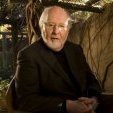
Why should I feel confident in any of my beliefs, given that educated people often disagree with respect to major issues? (Daoist perspective)
By
Will, in Daoist Discussion

By
Will, in Daoist Discussion